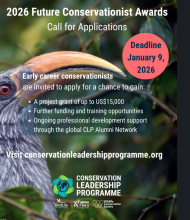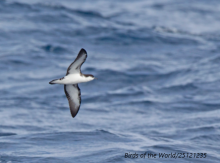Tuesday, February 23, 1 pm US EST/10 am US PST/6 pm UTC
Using InVEST for Coastal Zone Management in Belize by Katie Arkema of Stanford University, Gregg Verutes of WWF, and Chantalle Clarke-Samuels of the Belize Coastal Zone Management Authority and Institute. Ocean planning requires balancing numerous competing uses such as recreation and commercial fisheries, tourism, and renewable and nonrenewable energy production. To help meet the demand for information on how human actions affect ecosystems and the benefits that ecosystems provide to people, the Natural Capital Project (NatCap) developed the Integrated Valuation of Ecosystem Services and Tradeoffs (InVEST) toolkit.
In 2010, Belize’s Coastal Zone Management Authority (CZMAI) partnered with WWF and NatCap to answer the question, “Where should we site coastal and ocean uses to reduce risk to marine ecosystems and enhance benefits they provide to people?” The project team used a risk assessment tool in InVEST to assess how threats to marine ecosystems posed by humans and other factors can modify ecosystem condition and function. They then applied a suite of other models within InVEST to map and measure key ecosystem services – annual production of spiny lobster, tourism and recreation, and coastal protection in this case – and changes in value under different management scenarios. An important outcome of the Belize project is an “Informed Management” zoning scheme that blends development and conservation goals and is currently under review by the Belize National Assembly. Read more about the project at https://www.openchannels.org/node/12032. Webinar co-sponsored by MEAM, OpenChannels.org, and the EBM Tools Network. Register for the webinar at https://attendee.gotowebinar.com/register/3731913261291008001.
Tuesday, March 8, 1 pm US EST/10 am US PST/6 pm UTC
Live Chat with Karen Anspacher-Meyer and Jennifer McCann on the new video series “Insights from Leaders: Practical Solutions for Ocean Planning”. What keeps ocean planners up at night? And how are they tackling the challenges they face? Green Fire Productions interviewed global marine spatial planning leaders about the top challenges they face. The resulting series of brief video interviews, “Insights from Leaders: Practical Solutions on Ocean Planning”, captures good practices and lessons learned in marine spatial planning and are a vital addition to the field’s knowledge base. Watch a few of our favorite interviews and hear insights from Karen and Jen on the main lessons to draw from the videos. In this interactive “Office Hour” chat, watch a few of the videos with us, hear insights from Karen Anspacher-Meyer of Green Fire Productions and Jennifer McCann of the URI Coastal Resources Center and RI Sea Grant about the main lessons to draw from the videos, and chat with Karen, Jen, and many of their interviewees about these critical topics. Join the chat on March 8 at https://www.openchannels.org/chat/insights-from-leaders-video-series.
[Important note: This is not a webinar! The event is a live, interactive chat conducted by typing and reading text. You will the opportunity to ask panelists questions and share your own experiences and insights with panelists and other participants. All participants are able (and encouraged) to post, and all participants are able to view all posts. Inappropriate or off-topic content will be controlled. You are encouraged to log in to CoverItLive with your Facebook or Twitter account or type in your name below your posts, so we can easily match participants’ questions with answers. If you miss the live event, a transcript will be available on this page after the event concludes.]
Thursday, March 10, 1 pm US EST/10 am US PST/6 pm UTC
Lost Whaling Fleets of the Western Arctic by Brad Barr of NOAA. NOAA archaeologists have discovered the battered hulls of two nineteenth century whaling ships nearly 144 years after they sank off the Arctic coast of Alaska in one of the planet's most unexplored ocean regions. The shipwrecks, and parts of other ships, that were found are most likely the remains of 33 ships trapped by pack ice close to the Alaskan Arctic shore in September 1871. The whaling captains had counted on a wind shift from the east to drive the ice out to sea as it had always done in years past. The ships were destroyed in a matter of weeks, leaving more than 1,200 whalers stranded at the top of the world until they could be rescued by other seven ships from the fleet located about 80 miles to the south in open water off Icy Cape. No one died in the incident, but it is cited as one of the major causes of the demise of commercial whaling in the United States. Webinar co-sponsored by the NOAA National Marine Protected Areas Center, MPA News, OpenChannels.org, and the EBM Tools Network. Register for the webinar at https://attendee.gotowebinar.com/register/5479241746917913857.
Thursday, March 24, 1 pm US EDT/10 am US PDT/5 pm UTC
“To Target Everyone Is to Target No One”: What Social Marketing Can Offer Conservation and Management by Diogo Veríssimo of Rare and Georgia State University. Marketing techniques, honed by the commercial sector, are inherently about getting people to change their behavior, whether it is buying a product, recycling, or supporting a new approach to management. Marketing brings together elements of psychology, sociology, economics, and graphic design to help understand people and how they make decisions and build relationships with them. Conservation and management efforts can benefit from marketing because effective conservation and management are also about getting people – resource users, resource managers, consumers, local citizens, politicians, etc. – to change their behavior. In some cases, the desired changes are ending human behaviors/activities with negative environmental impacts such as poaching. In others, it is encouraging positive behaviors such as purchasing sustainably sourced seafood. This webinar will cover what social marketing is (and isn’t), what it offers to conservation and management practitioners, and examples of social marketing being used in a marine conservation context. Read more about social marketing for conservation and management at https://www.openchannels.org/node/12036. Webinar co-sponsored by MEAM, OpenChannels.org, and the EBM Tools Network. Register for the webinar at https://attendee.gotowebinar.com/register/2061840860623463169.
Thursday, April 14, 1 pm US EDT/10 am US PDT/5 pm UTC
Ocean Exploration and MPAs: Priorities, Technological Advances, and Partnerships by Alan Leonardi of NOAA. Advances in technology for ocean exploration are allowing us to reach new depths and previously unknown areas. As we reach these new frontiers, what is the interface between ocean exploration and the MPA community like? And how can state-of-the art ocean exploration support the research and policy decisions surrounding the nation's system of marine protected areas? Join this webinar for a presentation by and discussion with Alan Leonardi of the NOAA Office of Ocean Exploration and Research. Webinar co-sponsored by the NOAA National Marine Protected Areas Center, MPA News, OpenChannels.org, and the EBM Tools Network. Register for the webinar at https://attendee.gotowebinar.com/register/1376518561719910145.
Wednesday, April 27, 1 pm US EDT/10 am US PDT/5 pm UTC
The Climate Change Vulnerability Assessment Tool for Coastal Habitats by Jen Plunket of the North Inlet-Winyah Bay NERR, Scott Lerberg of the Chesapeake Bay NERR, and Robin Weber of the Narragansett Bay NERR. Changes in climate affect ecosystems directly and interact with current stressors to impact vital coastal habitats. Adaptive capacity imparted from a system’s natural traits or potential management actions can lessen these impacts. The Climate Change Vulnerability Assessment Tool for Coastal Habitats (CCVATCH) is a spreadsheet-based decision support tool that utilizes a team of local experts - land managers and researchers - to assess the possible interactions of climate change, stressors, and adaptive capacity to understand the climate vulnerabilities of a habitat. The CCVATCH Guidance Document provides background information and assessment questions for each climate-stressor interaction and adaptive capacity considerations. The spreadsheet itself calculates scores for sensitivity-exposure, adaptive capacity, and overall vulnerability. Learn more at http://www.ccvatch.com. Webinar co-sponsored by MEAM, OpenChannels.org, and the EBM Tools Network. Register for the webinar at https://attendee.gotowebinar.com/register/2672678943548703489.
Thursday, May 12, 1 pm US EDT/10 am US PDT/5 pm UTC
Project Eyes on the Seas by Mark Young of the Pew Charitable Trusts. Illegal fishing is a global concern that threatens the long-term health of our oceans, worsens the impact of overfishing on critical marine ecosystems, and costs up to an estimated $23.5 billion annually. It accounts for 1 of every 5 fish taken from the world’s seas and jeopardizes the livelihoods of tens of millions of people who depend on the oceans’ resources. The Pew Charitable Trusts has partnered with the Satellite Applications Catapult to pioneer Project Eyes on the Seas. This cutting-edge technology platform combines satellite monitoring and imagery data with other information, such as fishing vessel databases and oceanographic data, to help authorities detect suspicious fishing activity. Learn more at http://www.pewtrusts.org/en/multimedia/video/2015/project-eyes-on-the-seas. Webinar co-sponsored by the NOAA National Marine Protected Areas Center, MPA News, OpenChannels.org, and the EBM Tools Network. Register for the webinar at https://attendee.gotowebinar.com/register/5722975987119219457.
Thursday, June 23, 1 pm US EDT/10 am US PDT/5 pm UTC
Alternative Livelihood Opportunities for Coastal Communities in the Eastern Caribbean by the Eastern Caribbean Marine Managed Areas Network. To relieve fishing pressure and provide supplementary income to coastal communities surrounding MPAs, the Eastern Caribbean Marine Managed Areas Network (ECMMAN) is implementing sustainable, alternative livelihood projects on six islands. Supported by the Organization of Eastern Caribbean States (OECS), small livelihood grants were made available to qualified applicants selected by a regional committee. Projects range from eco-tourism cooperatives, agriculture projects, mooring sites, and training a network of fishers and vendors to catch and market invasive lionfish. The projects have effectively equipped displaced fishers and community members with the skills and investment needed to launch micro-enterprises. In this webinar we will hear about the Livelihood Support Fund concept and implementation, as well as from the facilitators of two national projects. Webinar co-sponsored by the NOAA National Marine Protected Areas Center, MPA News, OpenChannels.org, and the EBM Tools Network. Register for the webinar at https://attendee.gotowebinar.com/register/6950682974112616961.
Best wishes for your work,
Sarah Carr
Network Coordinator
Ecosystem-Based Management Tools Network
Mailing address: NatureServe, 4600 N Fairfax Dr, 7th Floor, Arlington, VA 22203
Phone: 703.908.1892
E-mail: [email protected]









